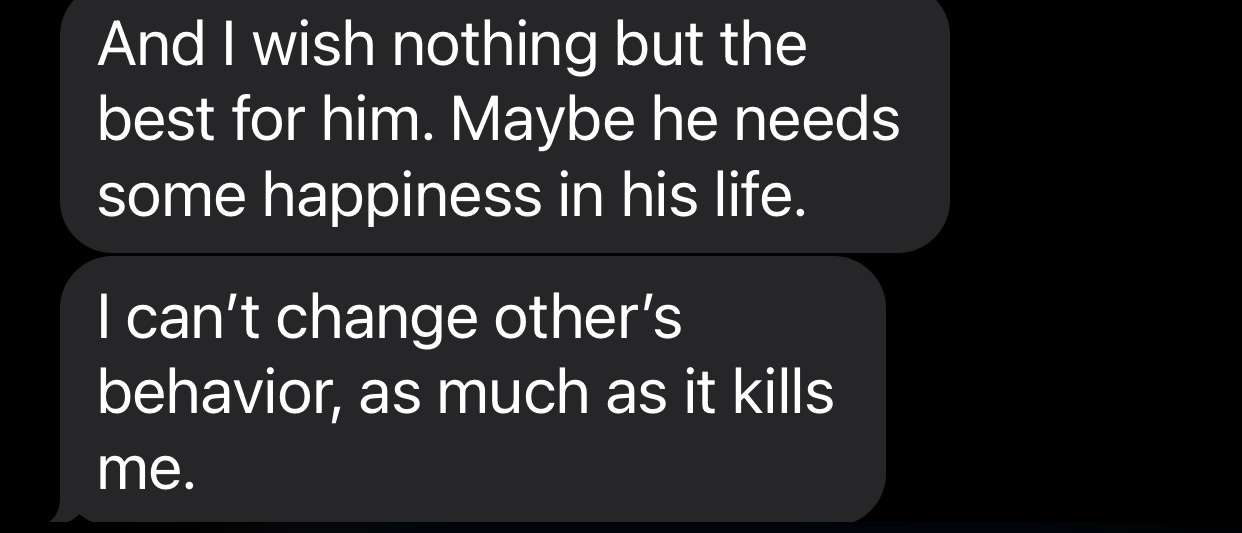“You can pay the fine, or I’ll see you in court. Either way, I win.”
Those were the parting words offered by an Australian police officer who recently decided to make an example of my adult daughter for crossing the road, in a crosswalk, against the red light. Worth noting:
Some two dozen others crossed ahead of her and her trio without consequence.
The group waited so long for the light to turn they thought it had malfunctioned. Her confidence (she supposes) in reporting that to the officer, as she and her friends continued to cross the street after being told to wait, set him off.
Leaving the scene, the officer and his partner crossed against the red light.
Jaywalking is jaywalking.
She described the scene as a public shaming. A male officer stepped in front of her, blocked her path forward, called her a smart ass, demanded to know how much alcohol she’d had that evening (none), grew more irritated when he learned she didn’t have an ID with her (she was not driving), and finally bellowed that she could have prevented the whole ordeal by saying she was sorry (she already had). In Australia, fines are mailed. She expects hers to roll in shortly.
If you’re thinking that’s a lot of baggage to unpack, you’re right. I’ve been hauling shit out of suitcases for days now, and I’m still not done. Coincidentally, I’d already been organizing some thoughts on the topic of winning. Mr. Position of Authority gave me a reason to get them across the finish line.
What does it mean to win? When the competition is prescribed and the rules are specific, as they are in an organized game, the winner gets the most points, finishes before the others, takes the king. And, the loser, well, loses. What about when the competition is implied and lacking a rulebook? My daughter’s case might seem straightforward: break the law, suffer the consequences. But, the more you rifle through the luggage, the messier things get. If walking against the light was the infraction, why the off-topic, dehumanizing interrogation? The officer’s final words are revealing. “Either way, I win.” It would seem the encounter was more of a personal superiority contest, otherwise known as a power trip. For better or worse, his buzz was likely short-lived, and my daughter’s eventual high-road response more on the mark than she might have realized when she wrote it.
In the right circumstances, winning is an affirmation of excellence and skill, losing an opportunity for improvement and character-building. This was triumph gone wrong.
I think of myself as more cooperative than competitive, but I don’t know if that’s accurate. I do know I’ve never been drawn to sports, not as a player nor even much as a spectator. Sure, I joined throngs of reveling collegians on Franklin Street when, thanks to a shot by then college freshman Michael Jordan, my alma mater won the NCAA men’s basketball championship. I’ve cheered for teams and players, marveled at the athleticism of Olympians, gritted my teeth watching climbers and sailors. I’ve felt vicariously victorious when my chosen competitor won, particularly when they took the prize against presumed odds.
On the other hand, I may be more competitive than I care to admit, because I don’t like losing, even as a fan. Losing brings me down. Being down makes me grumpy. Being grumpy makes me want to blame something for my bad mood. It’s the distressing epilogue to giving a moose a muffin!
Winning feels good. I still remember my delighted astonishment when, in high school, I was awarded first place for a national writing competition. I used the $500.00 prize to open a checking account. Sometimes, another person’s victory is the most rewarding win of all. Recently, I offered a subscribers’ contest. The randomly chosen winner was Chef Jordan Lloyd, a fellow I’ve associated with for more than a decade. Like me, he is a huge fan of local food and farming, and over the years he has promoted it enthusiastically while working his hospitality industry magic. He’s talented, generous, and authentic, characteristics that have garnered him an impressive following. So, when he announced that he’s never won anything else in his life, I was stunned and doubly pleased. Alongside jokes about me having the honor of being “his first,” there were hugs, high fives, and for me, a sense of satisfaction. It’s especially nice when a good guy wins.
We’re told that competition is healthy. To be sure, it is biologically driven and without it Darwin might never have had much to crow about. But, when besting others becomes intertwined with self-image it fuels jealousy, misconduct, and a win-at-all-costs mentality that can become malignant. Winning is one way of gauging success, and success has many definitions. For me, it means not just doing well, but also being well. The endgame is more than an accumulation of achievements. It’s also the condition of my relationships and the breadth of my kindness. When I’m out there doing whatever I have to do as a human in an oft-oppositional world, I need to be sure my whole heart is in the game.
~Elizabeth







Little does officer meanie know- I’m the true winner. I bet HE doesn’t have a mom as talented as mine!! Beautifully written, mommy. Thank you for including me in your story x
Wow Elizabeth, I am honored to have won and smitten with this kind cameo in your world of gifted writing. So sorry that experience happened to your daughter. Thank you for telling its story. It's so important to speak loud about these bullies of the world to silence their behavior.